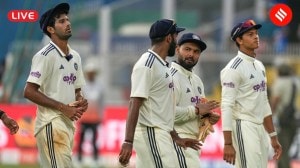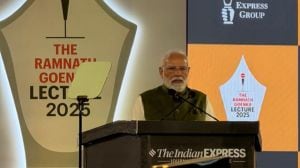‘Midnight’s Children kicked open the door’: Salman Rushdie on Indian writers in English finding their voice
In this extract, Salman Rushdie tells Thomas Meaney, Editor, Granta, about his latest book, the changing face of Indian publishing and why it is a great time to be a regional writer in India
 Salman Rushdie's Granta 173: India was published in November 2025 (AP Photo)
Salman Rushdie's Granta 173: India was published in November 2025 (AP Photo)By Thomas Meaney
What do you think about the state of publishing in India today? When one talks to publishers in Delhi or Mumbai, the excitement seems to be about translation.
I think what’s happened is three things. One is that the actual publishing industry in India is much more established. It’s on a bigger scale than it ever used to be. The second thing is, yes, they’re beginning to translate. One of the big problems in India was always translating between Indian languages; if you were writing in Bengali, nobody could read you in Hindi, which included Tagore. The translations that existed were often not very good. All that has improved a lot, so people are no longer in the same way confined to the language area – they can cross borders in the way that English crosses borders. And the third thing is that writing in English has proliferated into so many forms; it’s not just literary novels. Now there’s pulp fiction, there’s romantic fiction, there’s erotic fiction, so it’s become a much broader spectrum of publishing, which is healthier. I think young writers starting out in India now might not feel what I felt, which is that I couldn’t actually start out there, because there wasn’t a literary world. Now there is a literary world.
So you think a writer in Calcutta, writing in Bengali, has a better chance today of being translated into, say, Gujarati?
That’s still the problem – translation between different regions. Also, translating from English into Indian languages. But that’s happening. You know, it was a long time before anything I wrote was being published in Hindi. But now, I get published in several Indian languages: Malayalam, Hindi, Bengali, Marathi, et cetera. So all of this is a really healthy development. I think Midnight’s Children did do something which you might describe as kicking open the door. It allowed Indian writers in English to feel that they could be heard, that they didn’t have to imitate Western writing. They could find their own voices.
You and Naipaul are both interpreters of the Indian experience, in both fiction and non-fiction. But, certainly on the historical plane, you’re very far apart.
When I was writing Victory City (2023), one of the things I was writing against was Naipaul’s portrait of the Vijayanagara empire, where he, basically, uses the idea of ‘Muslims, bad; Hindus, good’. Vijayanagara destroyed by Muslim armies is a metaphor for the wounded civilization. Whereas, if you look at the history of that period, that’s not what’s happening. Actually, the Muslim caliphates and the Vijayanagara empire were much more interpenetrated than that.
They were intermarrying. There were Hindu generals in the Vijayanagara army. They were Muslim generals in the Golconda armies. It wasn’t about religion. It was about power and regional command, regional control. The Hindutva people have also picked up on that idea of using Vijayanagara as a metaphor. And I thought this needs to be undone.
Everybody’s trying to rewrite the history of India. And very often they want to rewrite it to downplay the Muslim contribution to it, and enlarge the non-Muslim contribution. One of the things that was strange about Naipaul was that when he first started going to India, when it actually was in much better shape, politically and culturally, he didn’t like it at all. And the more Hindu it got, the more he bought into it.
In India: A Million Mutinies Now (1990) he seems to be getting back in touch with the Hinduism of his childhood in Trinidad, where a kind of protestantised, fundamentalist version of the religion still thrived.
Vidia and me, we didn’t agree much, you know. We didn’t know each other very well. We only met each other maybe half a dozen times. But it’s one of those strange things, I disagreed with him politically in almost everything, but I like reading him.
It’s not surprising to say that I really like A House for Mr. Biswas (1961) the best. Because, I think as he got older, his writing lost human warmth. A Bend in the River (1979) is a fantastic novel, but it’s very icy in its attitudes. The Indian non-fiction books I don’t like. Actually, I like An Area of Darkness (1964) more than the other two because it feels more truthful. The return of the native discovering that the glorious homeland is not that glorious. I thought it was actually quite an honest book.
Excerpted with permission from Granta 173: India, which was published in November 2025





- 01
- 02
- 03
- 04
- 05


























